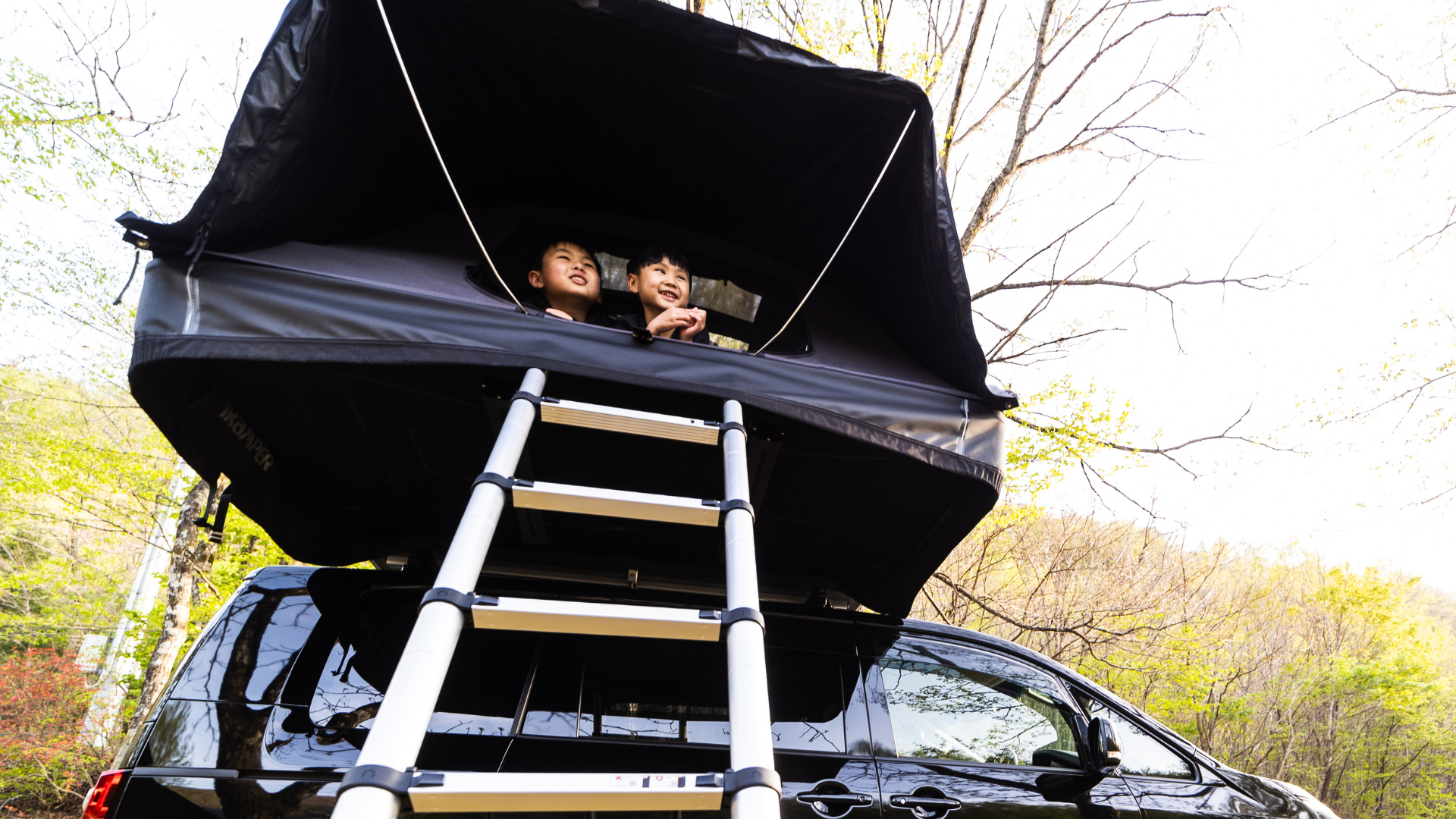Rooftop tents are an excellent way to elevate your camping experience, but choosing the right vehicle to support one is crucial. While almost any car can theoretically accommodate a rooftop tent, some are better suited than others.
So can you put a rooftop tent on any car? Rugged vehicles designed for outdoor adventures, such as Jeeps and SUVs, can handle a rooftop tent more easily. In contrast, smaller vehicles like sedans and hatchbacks can be challenging to set up safely.
In this article, we will explore what vehicles can support a rooftop tent and the factors to consider when selecting the right one for your camping needs.
1. Weight Capacity
There are two important weight capacity specifications to consider: dynamic weight capacity, which applies when the vehicle is in motion, and static weight capacity, which is relevant when the vehicle is parked with the tent fully set up.
By comparing the weight of the rooftop tent and its accessories to the vehicle’s weight capacity, one can determine if the vehicle is capable of safely accommodating the load. Adhering to the manufacturer’s weight capacity guidelines is essential for safety and to avoid potential damage.
2. Distance Requirements
The bottom of the tent is equipped with aluminum bars that are used to secure the tent to your car’s roof. It is important to ensure that these bars are not too wide for your vehicle. Refer to the tent’s manual to verify the recommended distance requirement and ensure a proper fit for your specific vehicle.
3. Roof Rack Fit
When choosing a roof rack, it is essential to verify its capability to handle the dynamic weight of the tent. Consult your vehicle’s owner’s manual to ensure compatibility between the chosen rack and your vehicle.
If your current roof rack is not suitable for a rooftop tent, it is necessary to purchase a third-party rack. This will ensure a secure installation of the rooftop tent and provide the necessary weight-bearing capacity.
4. Roof Type
Roof top tents are compatible with various roof types, except for bare roofs lacking tracks or rails. Vehicles with sunroofs are generally suitable, but those with glass roofs may not be compatible.
Rooftop tents can be installed on vehicles equipped with crossbars, side rails, gutters, tracks, and roofs with fixed points. However, it is not recommended to mount the tent on factory-installed crossbars or side rails that come with the vehicle, as they may not have the necessary load capacity.
Drawbacks
If not chosen correctly, rooftop tents can have drawbacks alongside their convenience and enjoyment. According to Wirecutter, installing a tent that exceeds your vehicle’s weight capacity can result in significant damage. The added weight and increased drag can lead to reduced fuel efficiency and put excessive strain on your suspension system. Additionally, placing a large tent on the roof raises the car’s center of gravity, increasing the risk of rollovers in case of an accident.
Taking into account the recommended weight requirements is crucial for several reasons. If you exceed the weight limit that your vehicle can support on the roof, it can lead to the following:
- Adversely impacting vehicle stability.
- Diminishing your control over the vehicle.
- Potentially decreasing fuel efficiency.
- Putting additional strain on the suspension system, leading to increased wear.
- Impairing the vehicle’s ability to accelerate quickly.
- Heightening the risk of roof damage.
Conclusion
In conclusion, when considering a rooftop tent, it is important to assess the capabilities of your vehicle. It is essential to consider the weight capacity of your vehicle, both in dynamic and static scenarios, to ensure safe and secure installation of the rooftop tent. Additionally, selecting an appropriate aftermarket roof rack with a higher weight capacity can provide added support. By considering these factors and adhering to the recommended guidelines, you can enjoy the convenience and comfort of a rooftop tent while ensuring the safety and longevity of your vehicle.
